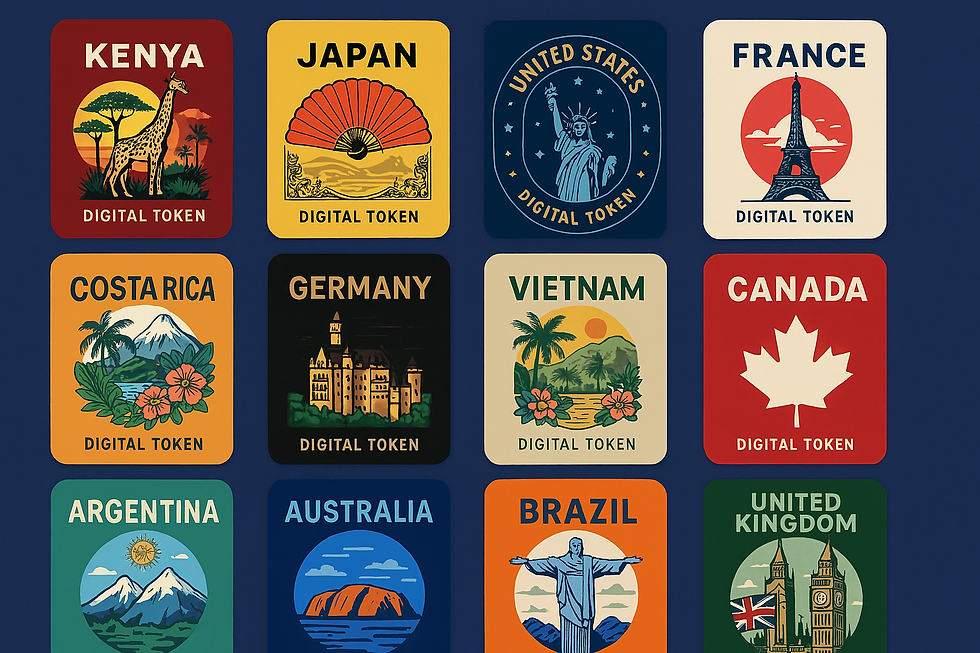A trip worth minting: Amex launches digital stamps
- Contributors
- Sep 25, 2025
- 2 min read
Updated: Sep 29, 2025

American Express has introduced Amex Passport, which allows US cardholders to collect digital "travel stamps" each time they make an international transaction using their American Express Consumer card.
These stamps are designed to help users commemorate past trips and inspire future ones. Each stamp is a unique digital token that visually represents the country or region where the transaction took place. The stamps are stored in the user's Amex Passport and recorded on Coinbase's base blockchain. Cardholders can enroll in Amex Passport through their account.
Technically, each stamp is an ERC-721 token (a non-fungible token) and is stored on Base, a Layer 2 blockchain built on Ethereum. The stamps do not contain any personal information. Instead, they include the name of the country or region, a short description and the date the stamp was earned. These stamps have no monetary value, cannot be transferred and do not incur any fees. They are purely commemorative and are intended to serve as digital keepsakes, leading to at least one headline saying "Amex ... Built a blockchain passport - don't worry you probably won't notice."
According to a recent survey by American Express, there is strong interest in this kind of digital memorabilia. 73% of respondents said they wanted more ways to digitally remember their past travels and 56% missed receiving a passport stamp.
Luke Gebb, Executive Vice President at Amex Digital Labs, stated:
Part of the magic of travel is reminiscing about past getaways, and commemorative keepsakes are a powerful way for travelers to relive their favorite trips. As physical passport stamps continue to disappear, Amex Passport creates an opportunity for Card Members to celebrate their travels.
Amex Passport is a creative example of how blockchain is being used to improve various experiences, going beyond payments and identity verification. Bhutan’s national crypto tourism payment system, for example, lets visitors pay for flights and local goods using cryptocurrency. As more companies and countries explore these technologies, blockchain is proving to be a powerful tool for making travel more personal, secure and connected.
You can view the Amex Passport smart contract here.
Written by Steven Pettigrove and Emma Assaf with Michael Bacina



